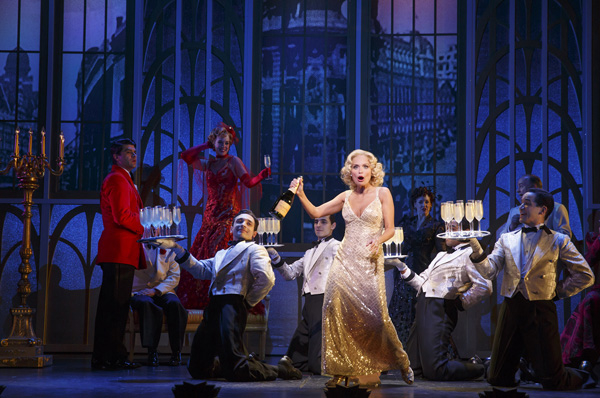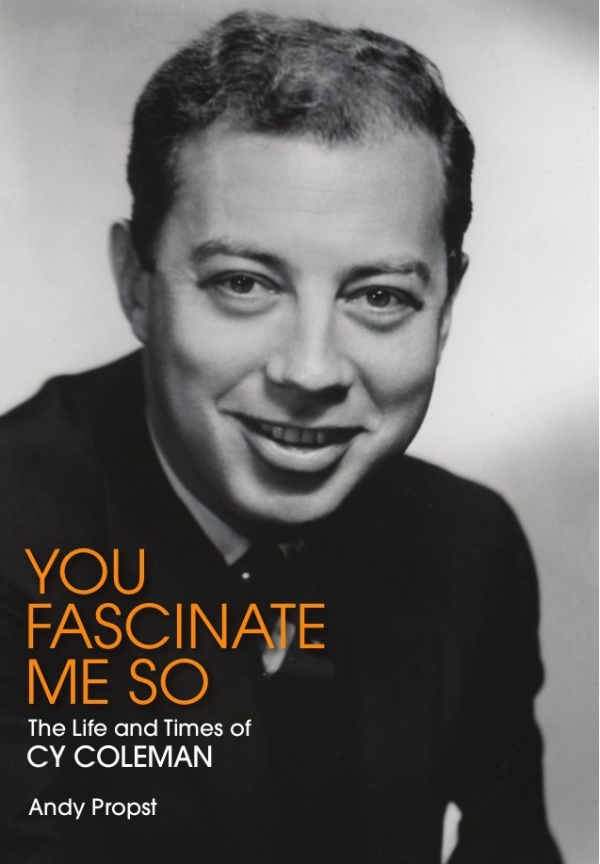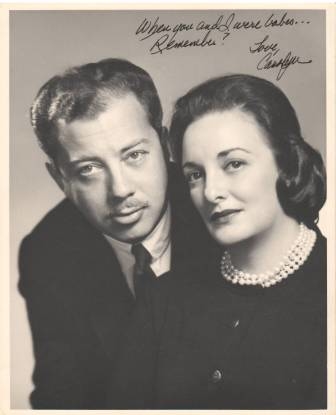You Fascinate Me So: Andy Propst Biography of Cy Coleman Examines Multitalented Artist
The ”On the Twentieth Century” composer was also a seasoned performer in his own right.

(© Joan Marcus)
Broadway composer Cy Coleman had a remarkably varied career. Before age 10 he was already a concert pianist. He eventually moved into the nightclub world and then onto Broadway where he penned musicals like Little Me and Sweet Charity, the show about a dancer-for-hire that features the unforgettable number "Big Spender." His operetta tribute, On the Twentieth Century, is presently receiving its first Broadway revival at the American Airlines Theatre. Throughout his life, Coleman never stopped experimenting with musical and theatrical form.
Author Andy Propst charts it all in his expansive new biography of Coleman, You Fascinate Me So. Propst (who was a staff writer and critic for TheaterMania from 2009-2013) spoke to us about Coleman's work, his fraught relationship with Carolyn Leigh, and his eclectic style.

You write in the book that you saw your first musical, Sweet Charity, at the age of nine. Whose idea was it to take a nine-year-old to that?
A woman by the name of Susan Miller. She was a teacher of acting at University of Illinois who had gone to college with my mother in Pennsylvania. She became my Auntie Mame. Susan was always introducing me to theater that might have been a little progressive for a preteen, but it did inspire a love of theater in me that exists to this day.
By the time Coleman was nine he had already played Carnegie Hall. How did he get such an early start?
His mother, Ida, was a landlord. She owned a couple of buildings in the Bronx. At the height of the Depression, one of the tenants left and took all their belongings except one thing they couldn't get out of the apartment: an upright piano. Ida brought it into the house and Cy (who was known as Seymour Kaufman at that point) started playing by ear. He began taking lessons at the age of four and just before he was seven his teacher had gotten him to the point where he was winning citywide competitions and playing at The Town Hall.
Later he worked as a jazz pianist in clubs all over the city. How did that influence his work as a composer?
Musically he was a sponge. All of the music he heard and played was fused into him. He had a love of Rossini, which led him to the grandiose style we hear in On the Twentieth Century. When he was starting out in clubs he was doing covers of Rodgers and Hammerstein and Cole Porter. All of that became a part of his musical DNA.
Was that eclecticism what led him to produce his classical mash-up album The Ages of Rock?
With that he was sitting around and thinking about rhythm. If you start putting accents on different notes while keeping the rhythm, it shifts what that music is. He started doing this with Mozart and began to hear things that sounded very much like the late sixties. So he got it into his head that if he were to take the music of Mozart or Chopin, but create arrangements that messed with the rhythms, he could create these funky classics. For me, it's one of the most joyous albums he's ever produced.
Click here to listen to "Rondo in Lemon Yellow" from Cy Coleman's The Ages of Rock:
Despite his early success, his mother didn't take his work seriously for a long time. What effect did that have on him?
His parents had come over from Bessarabia to build a life in the States. Like any parents, they wanted their children to be prosperous. Ida did not see music as a career in which someone could prosper. It wasn't until he was working with Lucille Ball in Wildcat that she said to him, "Well, I guess you're not wasting your time." At this point he'd played Carnegie Hall, been on TV, and written a hit for Frank Sinatra. None of it was good enough for Ida. The effect was that he really worked very hard because he felt he had something to prove. The number of projects he could keep going at one time is astonishing. He could have five different shows percolating at once.

(Photo courtesy of Notable Music Co. Inc.)
Was that hectic schedule difficult for his collaborators?
His relationship with lyricist Carolyn Leigh was tempestuous at best. I like to think of them as the George and Martha of musical theater because they never really got each other out of their systems. They were working together until the end despite the fact that after Little Me opened in 1962 they vowed to never work together again. According to Cy, she was very jealous of everything else he wanted to do. He still wanted to be a performer. He'd go out to Chicago or play at his club on the Upper East Side. In her eyes, this was taking away from the time they could be writing together. Their collaboration worked because she was as voracious with writing words as he was with melody. They fused very well that way.
How did his partnership with lyricist Dorothy Fields come about?
After falling out with Carolyn Leigh, Cy was looking for a new writing partner. He met Dorothy Fields at a gathering of songwriters for ASCAP and asked her if she'd like to write a song with him. She said, "Sure. Thank God you asked." Apparently people were too intimidated to ask this woman who had written with Jerome Kern and Irving Berlin. Within the year they were working on Sweet Charity.
He worked with Comden and Green for On The Twentieth Century. Why do you think it's taken so long for the show to come back to Broadway?
At some level Cy Coleman would have been a really interesting downtown artist. In 1978 the last thing you expected on Broadway was operetta. Similarly, I Love My Wife is done with four performers and four musicians, with the musicians doubling as characters. This is all stuff that pushes the envelope. It's got Broadway glitz on it, but it's not expected. People don't know what to do with On the Twentieth Century because it doesn't fit into a neat box. I don't think a lot of Cy's stuff does.









